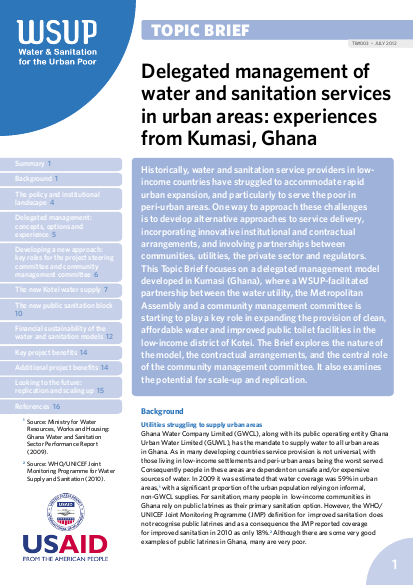
Historically, water and sanitation service providers in lowincome countries have struggled to accommodate rapid urban expansion, and particularly to serve the poor in peri-urban areas. One way to approach these challenges is to develop alternative approaches to service delivery, incorporating innovative institutional and contractual arrangements, and involving partnerships between communities, utilities, the private sector and regulators. This Topic Brief focuses on a delegated management model developed in Kumasi (Ghana), where a WSUP-facilitated partnership between the water utility, the Metropolitan Assembly and a community management committee is starting to play a key role in expanding the provision of clean, affordable water and improved public toilet facilities in the low-income district of Kotei. The Brief explores the nature of the model, the contractual arrangements, and the central role of the community management committee. It also examines the potential for scale-up and replication.
Resource collections
- UN Habitat - Urban Response Collection
- Urban Response - Urban Crisis Preparedness and Risk Reduction
- Urban Response Collection - Community Engagement and Social Cohesion
- Urban Response Collection - Economic Recovery
- Urban Response Collection - Environment and Climate Change
- Urban Response Collection - Housing, Land and Property
- Urban Response Collection - Urban Crisis Response, Recovery and Reconstruction
- Urban Response Collection - Urban Resilience